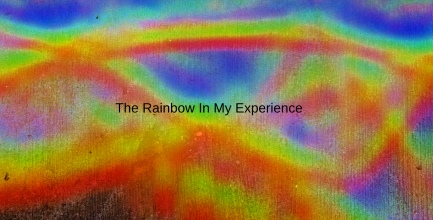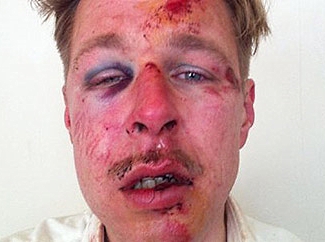 When I left home at 19 I was emotionally stunted and pretty much devoid of social skills. Luckily I fell in with a loving and kind group of gay people who helped me grow up. They were all so quick-witted, and I wasn’t, that they called me their “straight man,” my George Burns to their Gracie Allen. I learned many important and useful things. I share them freely. Don’t carry a wallet in your back pocket because it spoils the line of your jeans. Don’t put a sweater in the dryer. Swimmers have the best bodies. You must hang Christmas tree ornaments so they dangle freely and do not get caught up on other branches; similarly, you must hang the tinsel strand by strand rather than glopping it on. If you sit down to pee you can take a longer break. Mist your house plants daily, transplant them yearly, and mix your own potting soil (vermiculite, sphagnum moss, perlite, and potting soil). I also learned how to bandage somebody when they were beaten up for being gay. Most importantly, I learned not to fear people who were different, and “that has made all the difference.” I went on to live on the rez and in the ghetto. I was happy in all those places. There were people like me there.
When I left home at 19 I was emotionally stunted and pretty much devoid of social skills. Luckily I fell in with a loving and kind group of gay people who helped me grow up. They were all so quick-witted, and I wasn’t, that they called me their “straight man,” my George Burns to their Gracie Allen. I learned many important and useful things. I share them freely. Don’t carry a wallet in your back pocket because it spoils the line of your jeans. Don’t put a sweater in the dryer. Swimmers have the best bodies. You must hang Christmas tree ornaments so they dangle freely and do not get caught up on other branches; similarly, you must hang the tinsel strand by strand rather than glopping it on. If you sit down to pee you can take a longer break. Mist your house plants daily, transplant them yearly, and mix your own potting soil (vermiculite, sphagnum moss, perlite, and potting soil). I also learned how to bandage somebody when they were beaten up for being gay. Most importantly, I learned not to fear people who were different, and “that has made all the difference.” I went on to live on the rez and in the ghetto. I was happy in all those places. There were people like me there.
Fear of people who are different is called Xenophobia. It means “Fear of the Other.” It is easy to explain Xenophobia in a technical language, but I will try it first in everyday language: People who are not “normal” call what is normal into question, and that can make people exceedingly uncomfortable. People often want to believe that the way we do things is the one right and sane way to do things, that our beliefs and values are the true and correct ones because they are “built into the world” or “given in the nature of things,” and that, therefore, the way we see the world is the way the world really is. Otherwise, it is thought, people could just do anything and believe anything and it would all be just arbitrary and meaningless.

“Sorry to show you this. It’s the face of homophobia.” –Wilfred de Bruijn. Of course if there are skull fractures as in this case, you should not bandage the victim yourself; you must call an ambulance.
Fear of the Other is a serious matter—the thought of a meaningless life in a meaningless world is enough to make anyone uncomfortable. When the worldview of a Xenophobe is called into question—and sexual identity is one of the things that can obviously call it into question (which makes Homophobia a kind of Xenophobia)—the result can be violence, hate crimes, and murder.
Xenophobia is the result of unclear thinking. First, it does not logically follow that unless our beliefs and values are given in the nature of things, they are necessarily arbitrary and meaningless, but that is a conversation for another day. In fact, the Other is not a threat; it is a blessing, because it demonstrates the contingency of our way of being human in the world, and it is in the awareness of that contingency that the very possibility of meaning arises. In other words, because our beliefs and values are not built into the world, we can take responsibility for them, and that is how we create meaning. For this great favor, we should celebrate, not fear, the Other.
“And that has made all the difference,” Robert Frost, The Road Not Taken
The Face of Homophobia -> http://www.mambaonline.com/article.asp?artid=8032
There is a continuation of this discussion of xenophobia in Xenophobia is an Illness.
